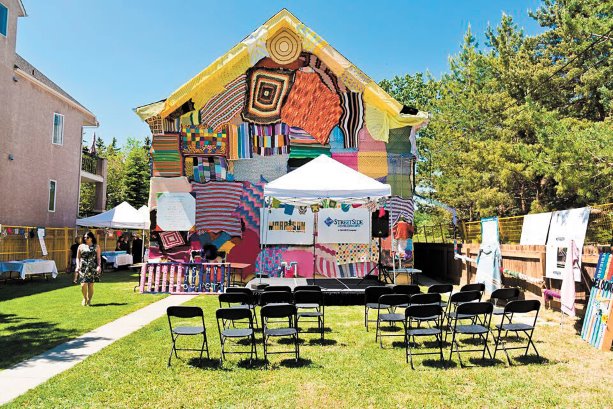Social housing advocates are applauding the 2016 federal budget because it pours billions of dollars into providing new construction and upgrading facilities for a wide range of homeless individuals and also offers up new loan incentives to private developers and municipalities.
The budget announced it will spend $2.3 billion over two years providing affordable homes for those in need. Included in the $2.3 billion offering is $200 million over two years to repair and build affordable seniors housing and $739 million over the same period to provide housing for First Nations, Inuit and northern communities. But, it also dangles another $2.5 billion in low-interest loans over five years to stimulate private and public development in low-income rental units.
"That hasn’t had a lot of coverage," said Thom Armstrong, executive director of the Co-Operative Housing Federation of B.C. "There is a fair amount of dollars over the $2.3 billion (in the budget) that is being allocated through a loan fund."
The combined effect of the two major expenditures will not only kick-start social agency housing projects but also is going to impact the construction in the private sector, he predicts.
Armstrong said that although the details of the $500 million allocated annually for five years for loans is not yet clear, it is accessible to private developers and municipalities looking to create affordable housing. That $2.5 billion loan offering, he said, also provides the impetus for public and private housing stakeholders to come together with the federal government to devise a long-awaited national housing strategy.
The 2016 budget designates Canada Mortgage and Housing Corporation to consult with stakeholders on the design of the Affordable Rental Housing Financing Initiative’s $2.5 billion low-cost loan plan for municipalities and housing developers for the construction of new affordable rental housing projects. It is expected to add 10,000 units to housing stock over five years.
"This initiative would encourage the construction of affordable rental housing by making low-cost capital available to developers during the earliest, most risky phases of development," the budget states.
Armstrong said in the 1970s and 1980s, the federal government had a similar program which offered low-cost dollars to developers of multiple unit residential building projects with the condition that a percentage of the units would be affordable housing for a set period.
"It was a good model," he said. "We are very encouraged by the (2016) budget."
The impact alone of the $2.3 billion is expected to affect major cities with housing problems and is being allocated through provincial governments and federal initiatives to non-profit societies.
Initiatives will encompass a range of needs from those living on the street to single and low-income parents, seniors, and those with addiction and mental problems requiring special needs housing.
A statement issued by BC Housing Minister Rich Coleman’s office to the Journal of Commerce said that the ministry is working with communities throughout B.C. to identify needs and where additional funding can be distributed.
"The province recently announced a $355 million investment to create more than 2,000 units of affordable housing. We are optimistic that the federal government will cost match this initiative to allow us to double the number of housing units," said the statement.
In Western Canadian areas where the oil and gas sector has flagged, the funding carves out new opportunities to put the construction sector to work.
"It is a big chunk of money and if B.C. gets its fair share, the industry will be busy building social housing," said Philip Hochstein, president of the Independent Contractors and Businesses Association of B.C.
"It will have a big effect on the industry, especially if the provincial government leverages money."
Alberta social housing agencies are buoyed by the news.
"This federal government expenditure recognizes that affordable housing is a core infrastructure for Canadians," said Diana Krecsy, president and CEO of the Calgary Homeless Foundation.
"We have had a decline in investment in social housing infrastructure since the 1980s and that is what led to homelessness and loss of social housing."
Calgary Homeless Foundation is one of nine housing agencies working together to raise $120 million to provide 3,000 units of affordable housing. The foundation’s goal within the campaign is $45 million. Through an initiative called RESOLVE the agencies have partnered with 11 homebuilders that have each contributed $1.4 million (matching provincial grants) plus they are working on a non-profit basis to construct apartments.
"They are not making a profit but breaking even," Krecsy said, adding the foundation partners now have seven projects in progress and one is a highrise. RESOLVE is hoping to begin another seven projects in the next year.
In Edmonton, Homeward Trust is optimistic that the dollars will trickle down to more new housing. Susan McGee, CEO of Homeward Trust Edmonton, said her organization has been building new facilities. It is fortunate to have its own land bank, but still relies on municipal, provincial and federal funding for developments that are in the $5 million range with 25 to 30 units. Currently, it has a $5 million project in northeastern Edmonton on the boards.
Other opportunities may also present themselves to organizations such as Homeward Trust.
"We don’t know yet what the (federal) program proposes and there may be the possibility of joint-proposals for the larger sites (where the structure blends more than one type of housing)," McGee said.
Since 2001, Homeward Trust has provided funds for 1,900 units and provided $82 million for 84 housing developments that have a combined market value of $215 million.
Cities such as Vancouver and Victoria have also been exploring new methods for housing individuals.
Vancouver has issued a request for proposals for the use of shipping containers to build a 21-unit, seven-storey building. The building would be sited in the Strathcona area where two other similar container buildings already exist — one is a women’s resource centre.
In Victoria a zoning loophole has led to booming micro-housing, with a unit measure of 200 to 300 square feet. Footprint 1806 is a 61-unit apartment building in that city.

Prior to demolishing an old building to make way for a new social housing project, the Calgary Homeless Foundation and partners hosted a ‘yarn-bombing’ event where school children wrapped the building in yarn projects, a signal of warmer things to come.











Recent Comments
comments for this post are closed